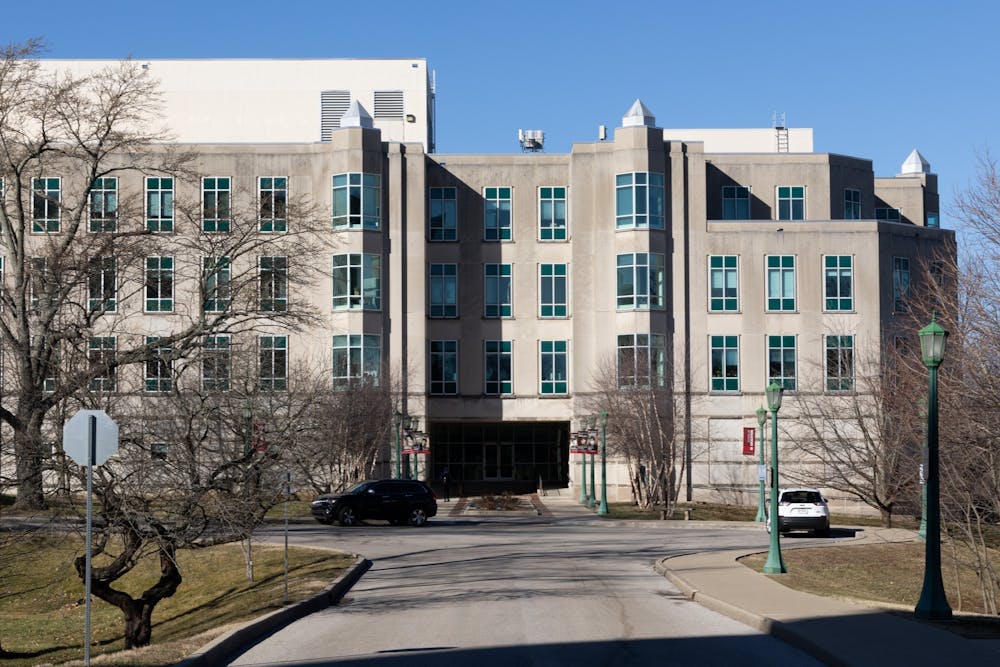The IU School of Education and Richland-Bean Blossom Community School Corporation, also known as Edgewood Schools, received a $3.4 million grant on Jan. 27 from the U.S. Department of Education for their second collaborative project, according to an IU press release.
The grant aims to research their “SMAHRT Initiative: Supporting the Mental Health of RBB Students” project where they will focus on supporting school counselors’ recruitment, training and retention as implementors of school-based mental health services. The project will involve IU School of Education graduate students and conclude in 2027.
According to Pew Research Center, 42% of U.S. public schools provided treatment for mental health disorders to students during the 2019-20 school year.
[Related: Gov. Holcomb calls for better access to mental health care in budget agenda]
The partnership is between Heather Ormiston, assistant professor in the counseling and educational psychology department, and Jennifer Anderson, director of Student Services at Richland-Bean Blossom Community School Corporation. Their first collaborative project is currently in its fourth year and focuses on using a multi-tiered system of support, where school psychologists work one-on-one with students needing mental health services in addition to assessments and evaluations. It also focuses on training IU school psychology students to implement mental health support in schools.
“This particular grant that we wrote is sort of an extension of the grant that I currently already have with the school corporation,” Ormiston said. “This one in particular is focusing on the recruitment and retention of school counselors in the public school corporation.”
Anderson said the partnership plans to achieve goals of recruiting school counselors through collaboration, systematic implementation and continual monitoring of the grant priorities. Anderson said collaborating with Ormiston has allowed Richland-Bean Blossom to utilize valuable resources and expertise in areas that aren’t typically addressed in teaching training.
"This collaboration has provided opportunities for the IU School of Education graduate students to practice their skills, be able to implement research-based therapies and interventions and give graduate students a wider breadth of experiences in the real-world setting,” Anderson said.
Ormiston said it is important to recognize that needing mental health support isn’t a sign of weakness.
“It’s okay to ask for help, recognizing that it’s okay, and that it’s a sign of strength to be able to get help — that’s what’s really important,” Ormiston said. “I think ultimately, that’s what’s driving our work: to be able to provide support to students and faculty and teachers too.”
[Related: IU announces partnership with TimelyMD to provide online mental health care resources]
Dave Shriberg, chair of the IU School of Education school psychology graduate and doctoral programs, said mental health and academics are two sides of the same coin — if a student is struggling academically, it will impact them psychologically and vice versa.
“If children are in schools that have significant mental health needs and challenges that are being unmet, they’re not going to be in the best position to learn and thrive, so it’s all interrelated,” Shriberg said. “It’s often gets talked about as two separate things — academics and mental health — but it’s very integrated.”
For schools that are not able to provide mental health professionals and services to their students, Shriberg recommends designing a curriculum that is as inclusive as possible and having child-centered classroom activities and structures.
“The main thing schools can do is think about their schools as a whole and what the actual experience is for kids and if their school is being a truly inclusive and supportive place,” Shriberg said. “Then, working with professionals on ways to promote things like social, emotional learning and anti-bullying that are intended for everybody will help schools make a place for more kids where they are growing to thrive.”




